President Donald Trump stood at the Oval Office podium on October 15, 2025, and did something modern U.S. presidents almost never do. He confirmed—casually, almost gleefully—that he had authorized the CIA to conduct covert operations inside Venezuela.
His justification came in two blunt sentences. Venezuela, he claimed, had “emptied their prisons into the United States of America,” and “a lot of drugs are coming in from Venezuela.” Then, with a wry grin, he dodged the obvious follow-up—whether Nicolás Maduro himself was a target: “Wouldn’t it be a ridiculous question for me to answer?”
The admission cracked open decades of intelligence protocol. Within hours, the story dominated headlines worldwide, setting the stage for what may become the most consequential U.S. operation in Latin America in decades.
A Covert War Brought Into the Open
Behind Trump’s remarks lies a formal presidential finding—a classified directive that authorizes the CIA to undertake covert action abroad. Normally, such findings are kept secret, briefed only to select congressional intelligence committees. Trump made his public. That alone is extraordinary.
The order comes as the Pentagon stages the largest U.S. military deployment to the Caribbean since the 1989 Panama invasion. Over 10,000 troops have been positioned in the region alongside warships, F-35 fighters, drones, and Marines. In recent weeks, U.S. forces have struck five vessels in Venezuelan waters, allegedly linked to drug trafficking. Twenty-seven people were killed.
Venezuela denies the drug claims, calling the strikes extrajudicial executions. The UN Security Council convened an emergency session warning of “an alarming escalation.” Caracas has mobilized militias and vowed to respond to any U.S. aggression.
The Official Justification—and Its Cracks
The administration’s legal footing rests on an explosive claim: that Tren de Aragua—a violent Venezuelan prison gang—is operating under Maduro’s direction as a kind of “narcoterrorist invasion” of the United States.
But a declassified National Intelligence Council memo from April 2025 undercuts this entirely. The document concluded that Maduro’s regime “probably does not have a policy of cooperating with TDA and is not directing TDA movement to and operations in the United States.” It found no evidence of regime coordination with the gang.
In other words, the central narrative used to justify extraordinary military and intelligence powers is contradicted by the U.S. intelligence community itself. That hasn’t slowed the escalation.
Monroe Doctrine 2.0: The Real Game
Here’s what most headlines miss: this isn’t just about drugs. It’s about power—and the return of a 19th-century strategic reflex: the Monroe Doctrine.
Venezuela isn’t just another foreign policy target. It holds 303 billion barrels of oil—the largest proven reserves in the world. For the past two decades, China has become its dominant trading partner and investor, locking in more than $200 billion through oil-for-loan deals and controlling nearly half of state oil firm Petrolera Sinovensa.
For Marco Rubio—the administration’s foreign policy architect—and CIA Director John Ratcliffe, this isn’t a narrow narcotics operation. It’s about pushing China out of Washington’s backyard and reasserting U.S. control over the hemisphere’s strategic energy base.
The drug war narrative provides the legal and political cover. The strategic goal is far larger.
How This Could Play Out
Scenario 1: Quiet Regime Change.
CIA operations fracture Maduro’s inner circle. Economic and covert pressure leads key power brokers to negotiate his exit. María Corina Machado—Venezuela’s exiled opposition leader and newly minted Nobel Peace Prize laureate—returns from hiding to head a transitional government. U.S. oil companies flood in. China loses its foothold.
Scenario 2: A Quagmire.
Maduro digs in. Allies like Russia, China, and Cuba shore him up. CIA action bites but doesn’t break. U.S. legitimacy erodes as civilian casualties mount and regional governments balk. A long, grinding shadow war follows—eerily familiar to Latin America’s Cold War playbook.
Scenario 3: Escalation.
A single spark—real or manufactured—triggers land operations. Trump has already mused publicly about “land options.” A fast operation turns into a slow conflict. A humanitarian crisis explodes. Migration spikes. Washington owns a problem it can’t easily end.
The Legal Fog
The administration has invoked an aggressive interpretation of wartime powers, framing Tren de Aragua as an “unlawful combatant” network. That allows Trump to claim the strikes fall under armed conflict authorities rather than law enforcement.
Human rights lawyers say this is legally flimsy. Even at the height of the U.S. “War on Drugs,” the idea of treating cartels as a foreign army didn’t survive serious legal scrutiny. This time, the stakes are higher—and the opposition louder. Senate Democrats have already moved to challenge the authorization under the War Powers Resolution.
Policy Outrunning Intelligence
When presidents move faster than their intelligence community, history rarely ends well. The declassified memo doesn’t just cast doubt; it undermines the core premise of Trump’s justification. That means these operations rest on shaky ground—strategically and legally.
Yet for the White House, this may be the point. The move isn’t simply tactical. It’s performative power projection, meant to force events rather than follow them.
What’s at Stake
This isn’t a story about narcos. It’s a story about who controls the hemisphere’s energy future, who sets the rules in Latin America, and whether Washington can still dictate outcomes in a region where China has already moved in.
The Monroe Doctrine was born in 1823 as a warning to European empires. Two centuries later, it’s being reborn as Monroe Doctrine 2.0, aimed squarely at Beijing’s presence in Caracas. But this time, the world looks very different. U.S. dominance isn’t guaranteed, and Venezuela’s collapse has created one of the largest displacement crises on Earth.
Seven million people have already fled the country. A military conflict would push that number far higher.
The Real Question
Trump’s CIA authorization is either the beginning of a rapid strategic shift—or the opening of a very old wound in Latin America.
Past U.S. interventions in the region—from Chile in 1973 to Nicaragua in the 1980s—were sold as quick fixes to “threats.” They rarely were. Most became long, costly entanglements with unintended consequences.
So the question isn’t whether the CIA can act. It’s whether this gamble will reshape the hemisphere—or repeat its darkest history.
Key Takeaway
The war on drugs is the surface story. The battle for influence, energy, and geopolitical alignment is the real one. The world just watched a U.S. president admit, in real time, that the gloves are off in Venezuela. What happens next won’t just decide Maduro’s fate—it will shape the strategic map of the Americas for decades.

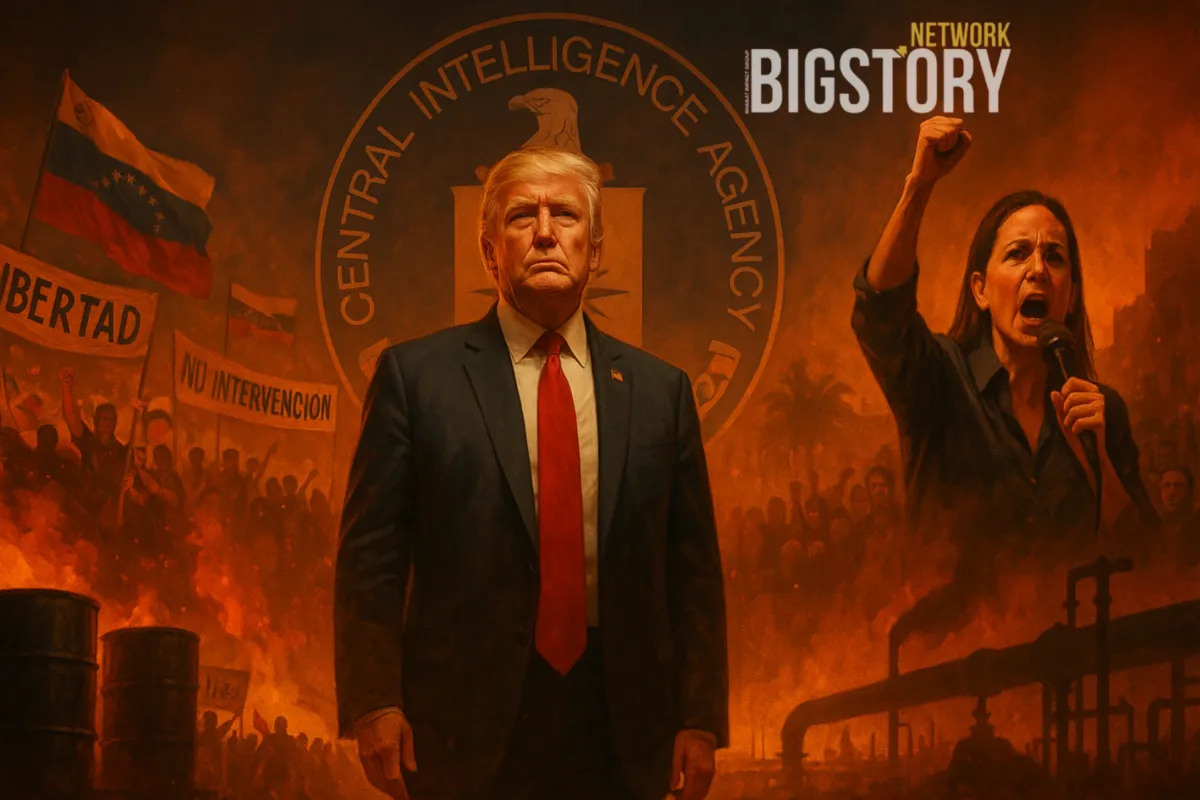
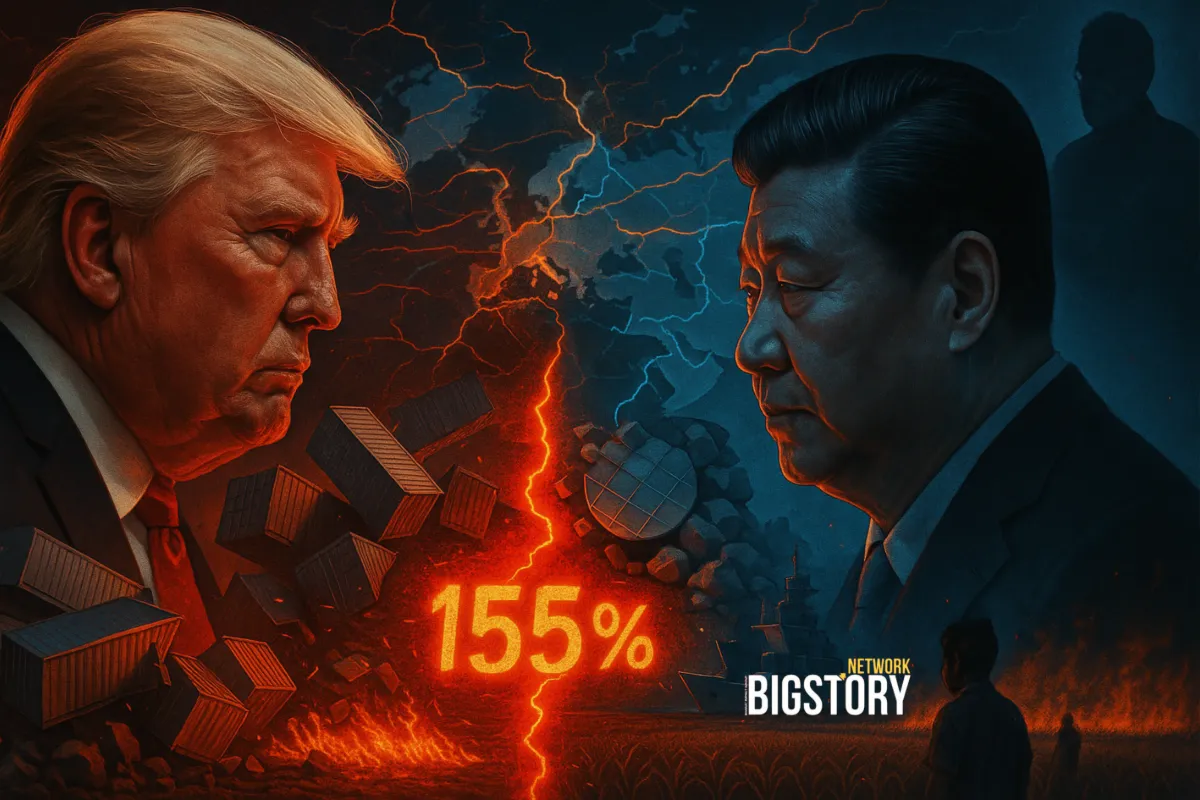
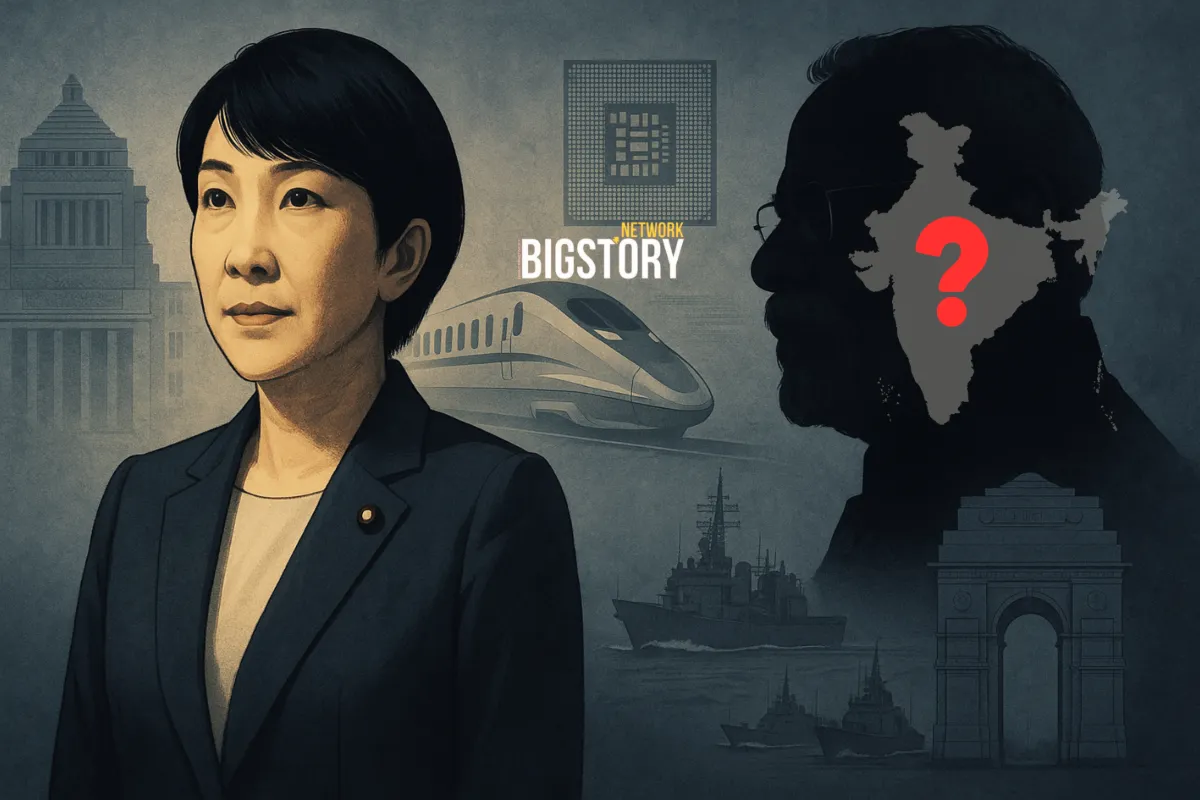
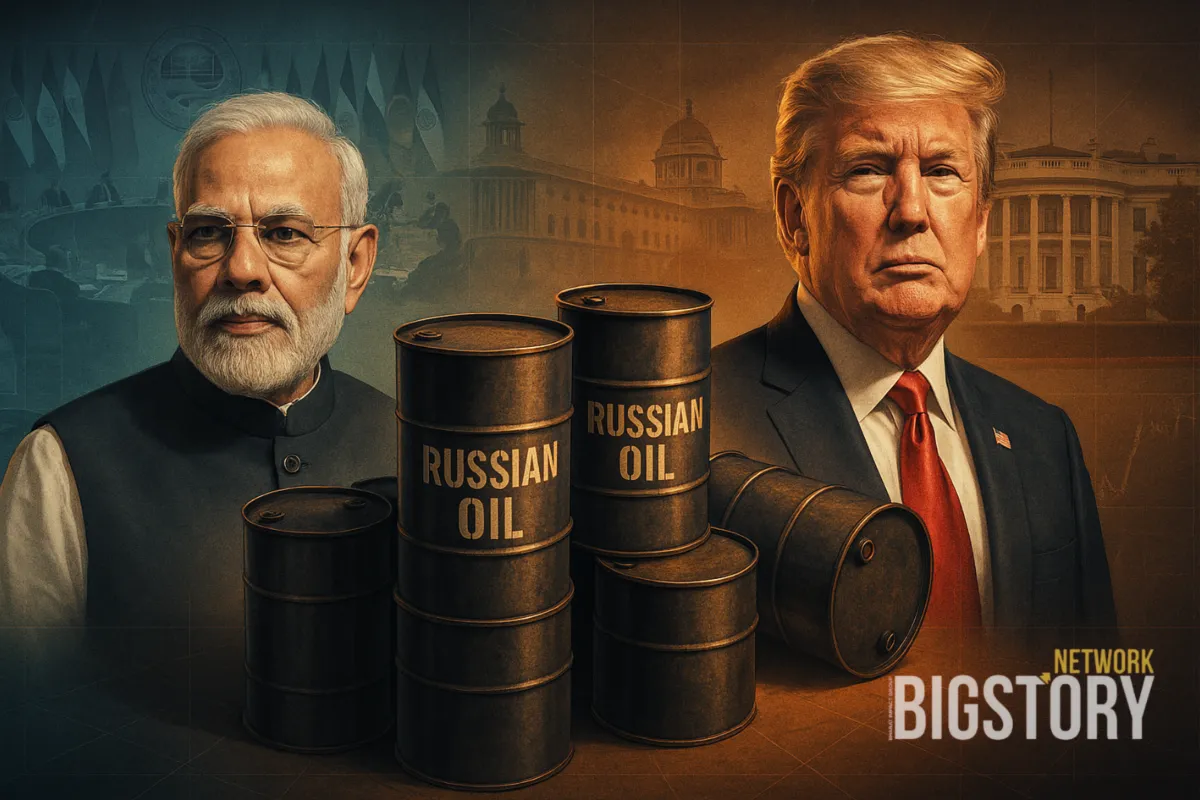
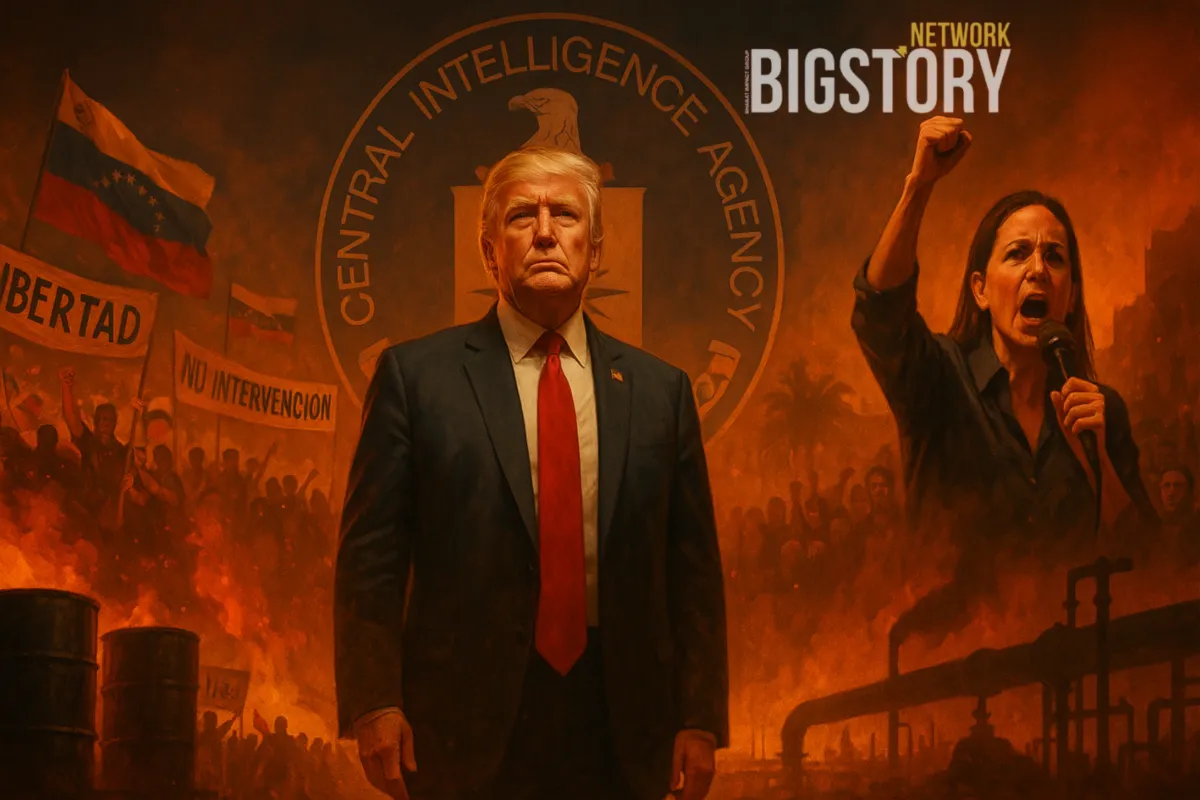

Leave a Reply